‘Hey’ is a new series where we catch up with interesting people from Plymouth and the surrounding area. We discover what they are about and what they are up to.
Next up in the series is Sam Dennis & Kate Langston, founders Heyl Bakery.
Heyl Bakery was founded by Sam and Kate just before lockdown hit. After years of dreaming of owning their own bakery, they quit their jobs in London and moved back down to Plymouth to finally pursue their dream. They’re passionate about food and are dedicated to using 100% plant-based ingredients.
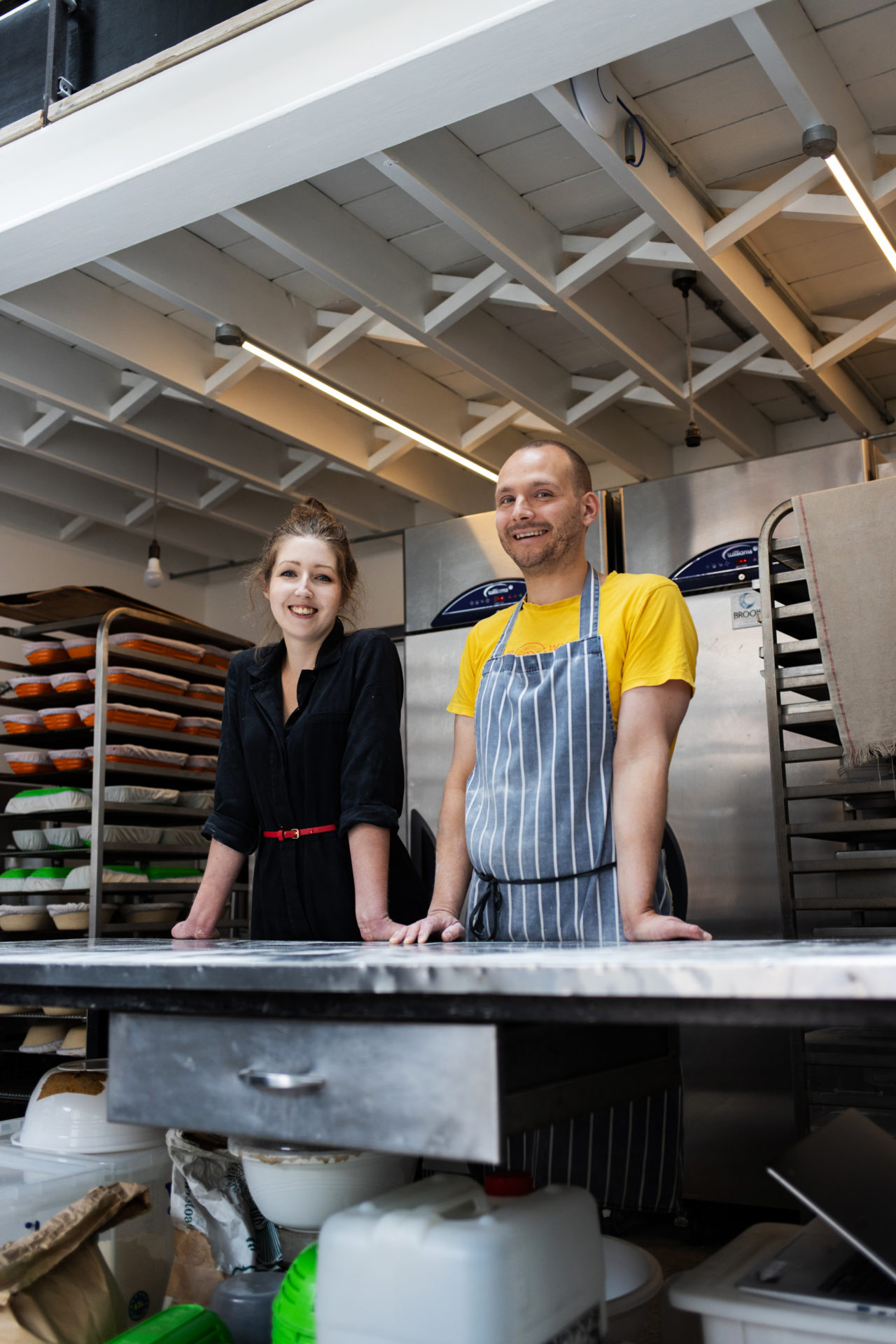
How are you both?
Kate: Yeah good. This time last year, I think the answer would have been different. I think last year was a stressful year, with everything that was going on in the world and we were just getting ourselves set up at Alma Yard. 2022 was a bit of a blur. This year kind of feels like we’re ok, got a hold on things, got a bit more time to see people outside of work, be there for family and stuff.
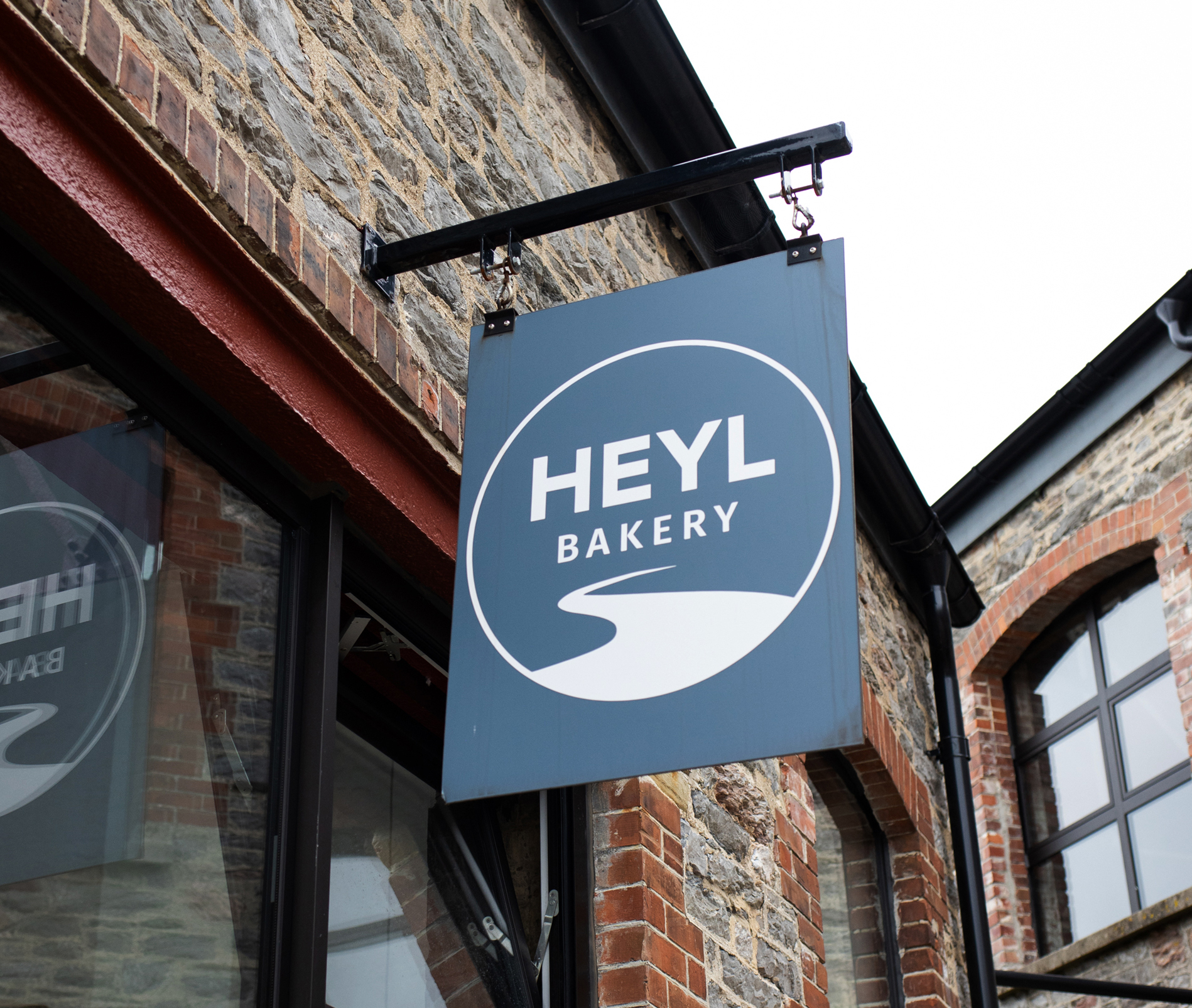
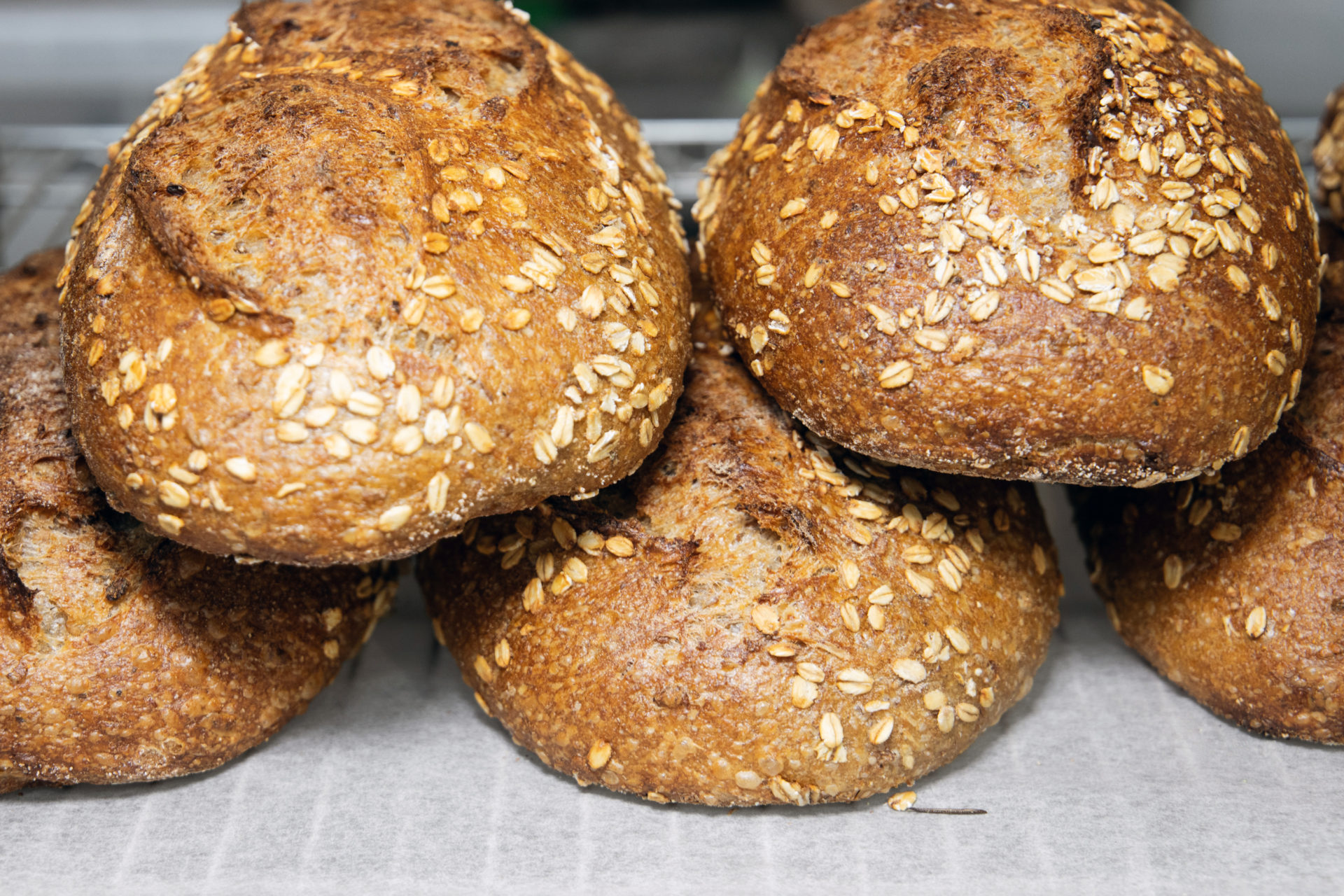
How did Heyl Bakery come about?
Sam: We’ve been talking about doing a business, in a very hypothetical sense for a long time. I knew I wanted to do a food business way before that. I used to have an office job that I hated but found myself getting more and more into bread making. In 2018 I ended up spending all my savings going to learn to make bread for six months at The School of Artisan Food. I got a job in a bakery in Hackney for a year. Then Kate’s Dad passed away in 2020 and we ended up spending a lot of time in Plymouth. So we were down here and we were just talking about what we wanted from life, really, and at one point we were daydreaming about setting up a micro bakery in the garage at Kate’s Mums House.
Kate: We came across the Real Ideas Organisation. They were running a scheme called Start Something, and it’s basically designed to help 20 new or growing independent businesses get off the ground, through using the various services and support that they offer. One of the things that they had as part of that is their old bakery space. They had Column Bake House there before and they were looking for someone to take up or have ideas for it. We kind of put two and two together. We want to move to home, we want to start a food business. Why not just apply? So we did and we got the opportunity, so we went for it. We quit our jobs in London, moved down in space within a month and managed to set up a bakery.
Sam: We went from it being like this really far away, remote thing, and then suddenly it was like. So are we opening a bakery? Are we moving to Plymouth?
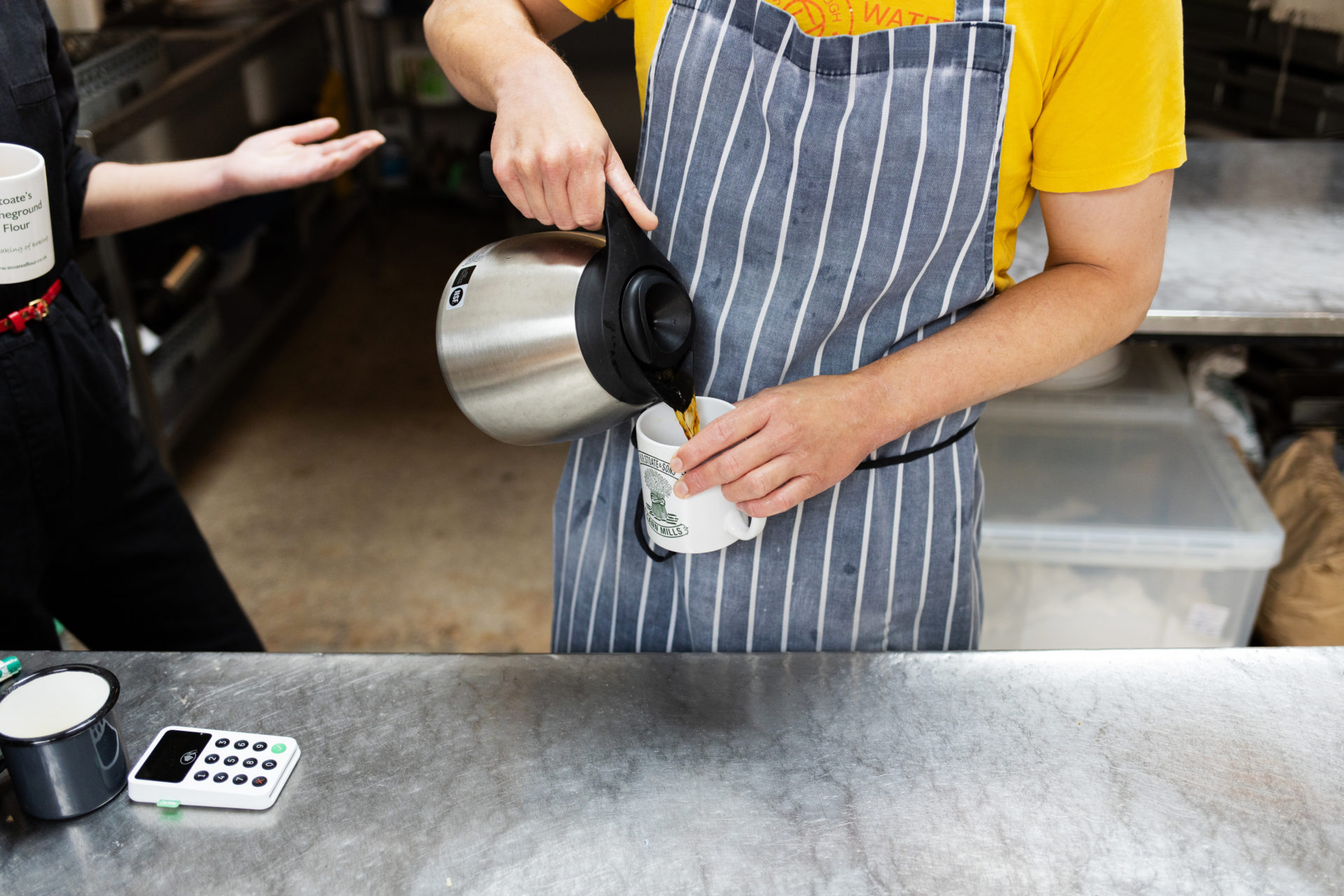
Was it terrifying when you did it?
Kate: It was just such a mess of a year in a weird way, lockdown happened, COVID happened, we were isolated up in London, my dad died and that just threw everything up in the air. So actually it almost felt like a sensible decision in this big kind of chaos and I guess so many people were making decisions at that point, so many people that we knew were kind of like leaving their jobs and moving closer to home. It made us ask ourselves, is this what you want? That was just a wake-up call for us, that, no, it wasn’t. So at what point are we going to make this decision to set up this business and do something we really care about? And that was the kick up the backside.
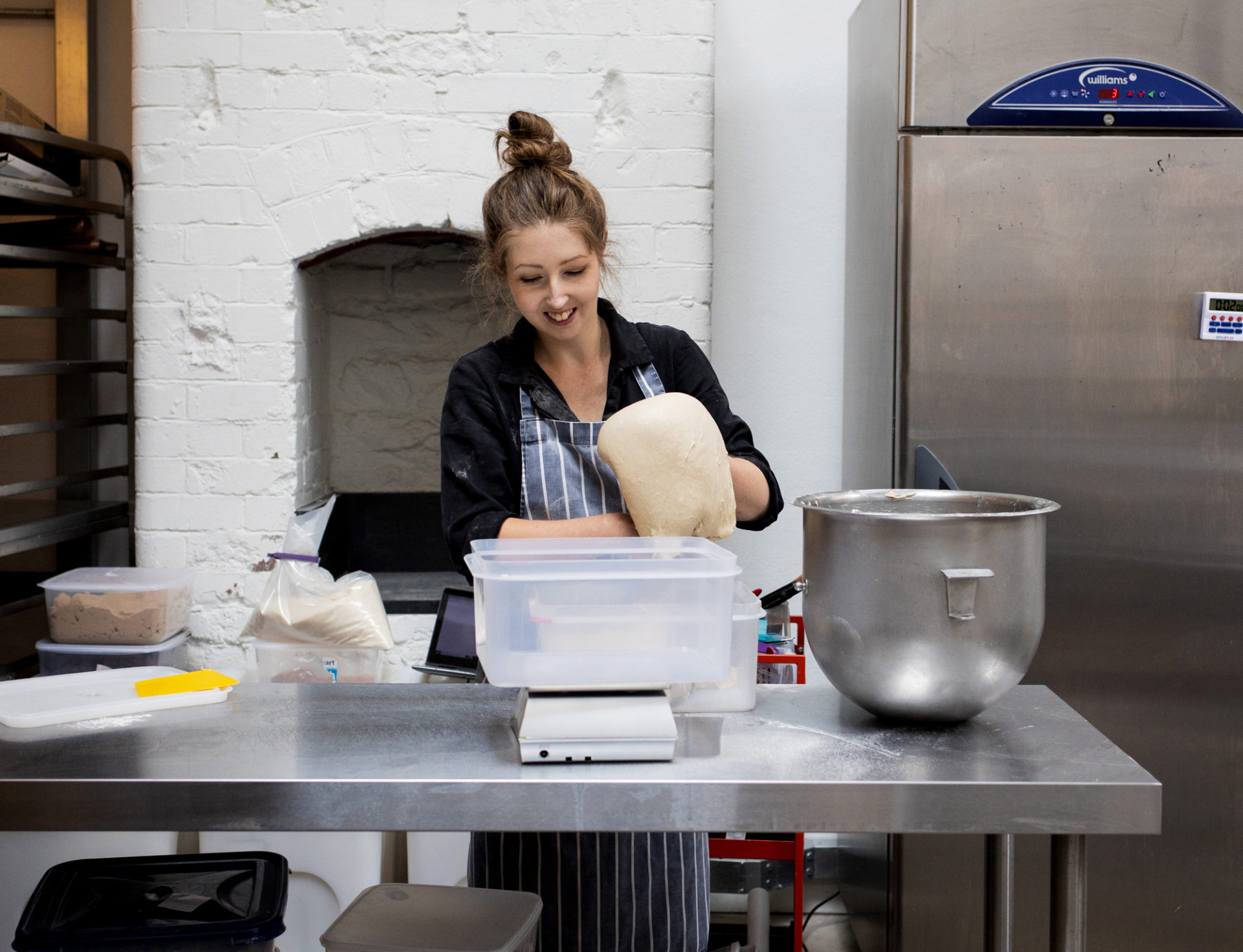
What’s the favourite thing for both of you about your job?
Kate: Kind of depends on the day for me, sometimes it’s just the fact that we get to come into work on a day and just eat and make delicious food.
Sam: We had it just last week where we had some customers come in and they’ve been regulars for a long time, but they don’t get very much because they don’t live in Plymouth, they really get what we’re trying to do, what we’re about, have that feeling that your customers really value what you’re doing on its own terms. A lot of people will come to a cafe or a restaurant or whatever and expect certain things and we feel like we’re trying to do something a little bit different and the ethos behind it is the driver, so to then have super happy customers that really get it, and want it for that reason. That’s really gratifying.
Kate: Being able to change people’s perception of food, being able to produce and grow if they’re doing the right thing.
Sam: I spent so long wanting to make a certain kind of bread and daydreaming about that when I was stuck in an office job. I’m terrible at getting up early in the morning, I hate it, but if the bread’s good and I pull the first load of loaves out of the oven and they’re just right and I still get a really big kick out of that. I think oh, that’s the bread that I really wanted to make, that I saw other people making and now I can make it.
Kate: I think as well, running a small business and then becoming part of the business community has been quite grounding. I think we both since university have just always been driven by, you go wherever the job is, don’t get too attached, just move on when you need to. And so finally having somewhere that we decided to put down roots, like really committed and invested, it’s just really great to feel part of the city again and feel like we’re contributing something, but also getting to know other people, getting to know businesses. Yeah, I think that’s been a really unexpected part of the journey.
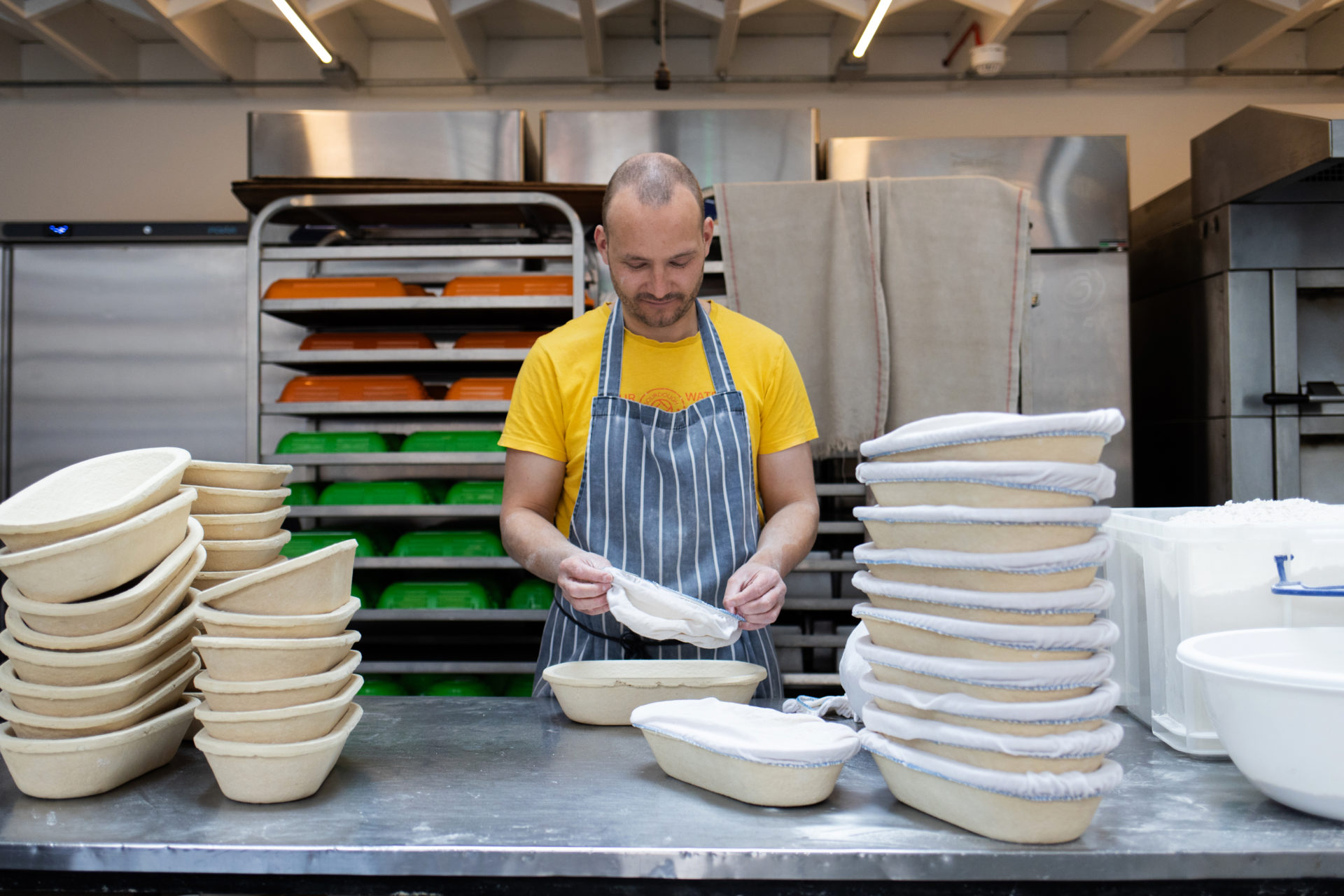
One thing for everyone to try?
Sam: Something we’ve been talking about lately is saying no. Opportunities have come our way and we could take business in a different direction. And the tendency is to be like yes, yes, yes! But actually, Kate in particular is really good at saying no. Let’s pause, let’s think about it. Is it really what we want? In our short time we’ve seen businesses come and go, which is really scary. Businesses start up with so much promise and then it looks like they’re going great but then it turns out actually that maybe they were spread too thin or the margins weren’t there. You never know what’s going on in the background. Just desperate not to be one of those businesses disappears in a blink.
Kate: Also, I think giving yourself permission to have confidence and think you’re doing the right thing. It’s quite hard, certainly for me, but I’m having a lot of people think that you have this idea or because you believe this particular way to do something or the right way to do something but I guess people are telling you otherwise. You doubt yourself and then you end up doing the wrong thing for you because you do, you follow someone else’s advice to another opinion. But actually what I’ve learned over the last few years is that every time we’ve been in that situation and stuck to our guns and gone like no, I think we think this is the right thing to do. It’s actually paid off. We see other people have gone the other way and you just think that’s not you guys, that’s not what you’re about…I think if you really believe what you’re doing, you really value it then stick with it. A lot of people would have said a vegan bakery won’t work. It’s a silly idea, you’re not going to pull off or not having disposable takeaway cups will put customers off. We’ve stuck with it because it was the right thing to do and help people understand what we’re about and therefore feel more attached to what we do and more interested in what we do.
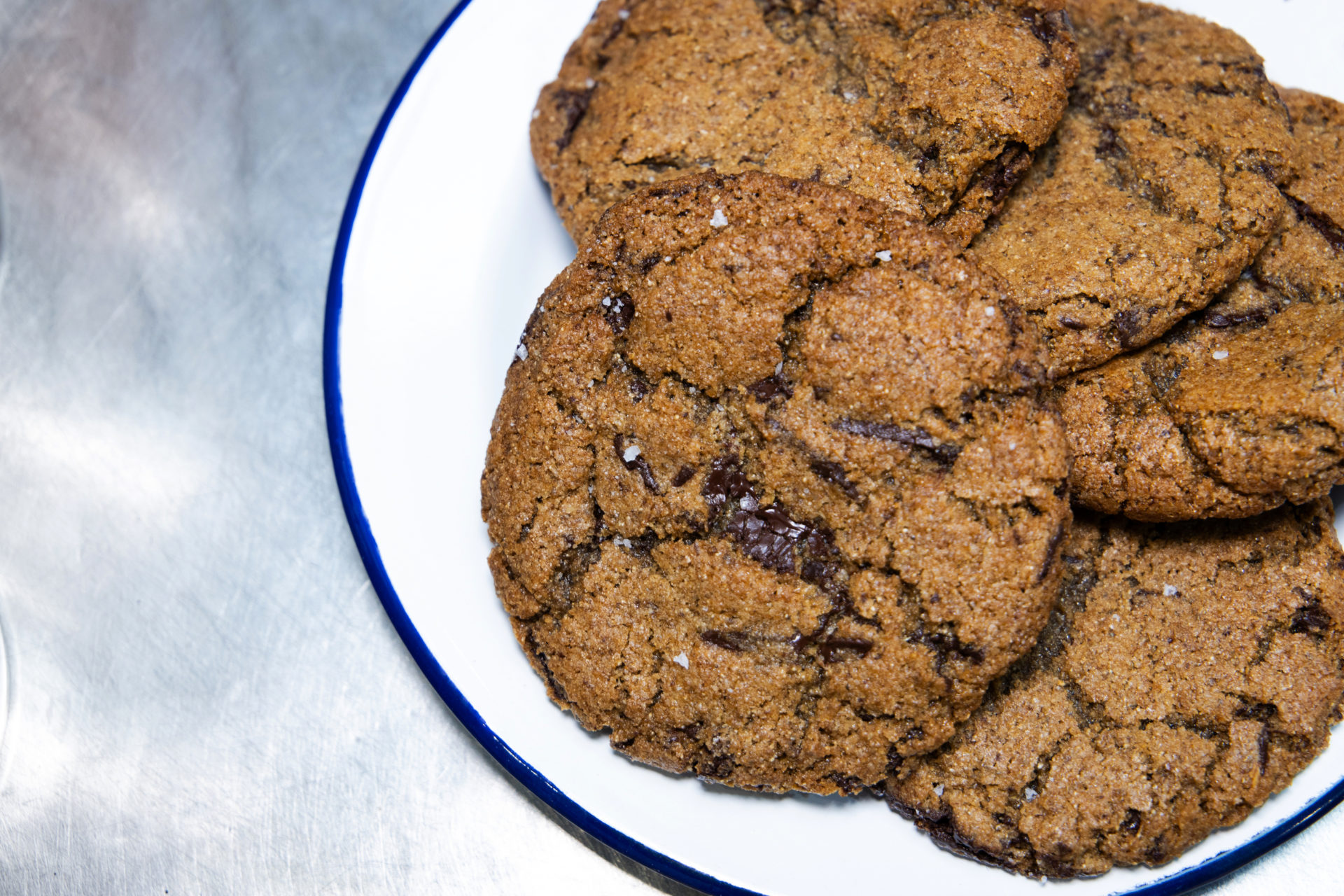
What aspect of Heyl are you most proud of?
Kate: I think being vegan and sustainable is a really important part of it, definitely. On a slightly more kind of I guess selfish way, just the fact that we are still here. It’s been such a difficult year for everyone, for every business. And again, we’re not through the long grass yet. But I think I’m just amazed that I never thought we could have put as much energy and time into the business without burning out, and yet at every point when we’ve really been up against it, really given everything we have, it’s paid off. People have helped us out and it’s come together, just been amazing to get here and have the amazing customers that we do and work with the amazing businesses that we do.
Sam: One of the aspects I’m proudest of is the flour we use. All UK grown, all stoneground, all organic. We are so lucky to have a local mill that we work with, who is championing diverse grains and working directly with farmers and bakers. We started out quite tentatively, using a bit of local lour here and there, but we’re now at the point where it’s the bulk of the flour we use, if not all the flour we use in certain products.
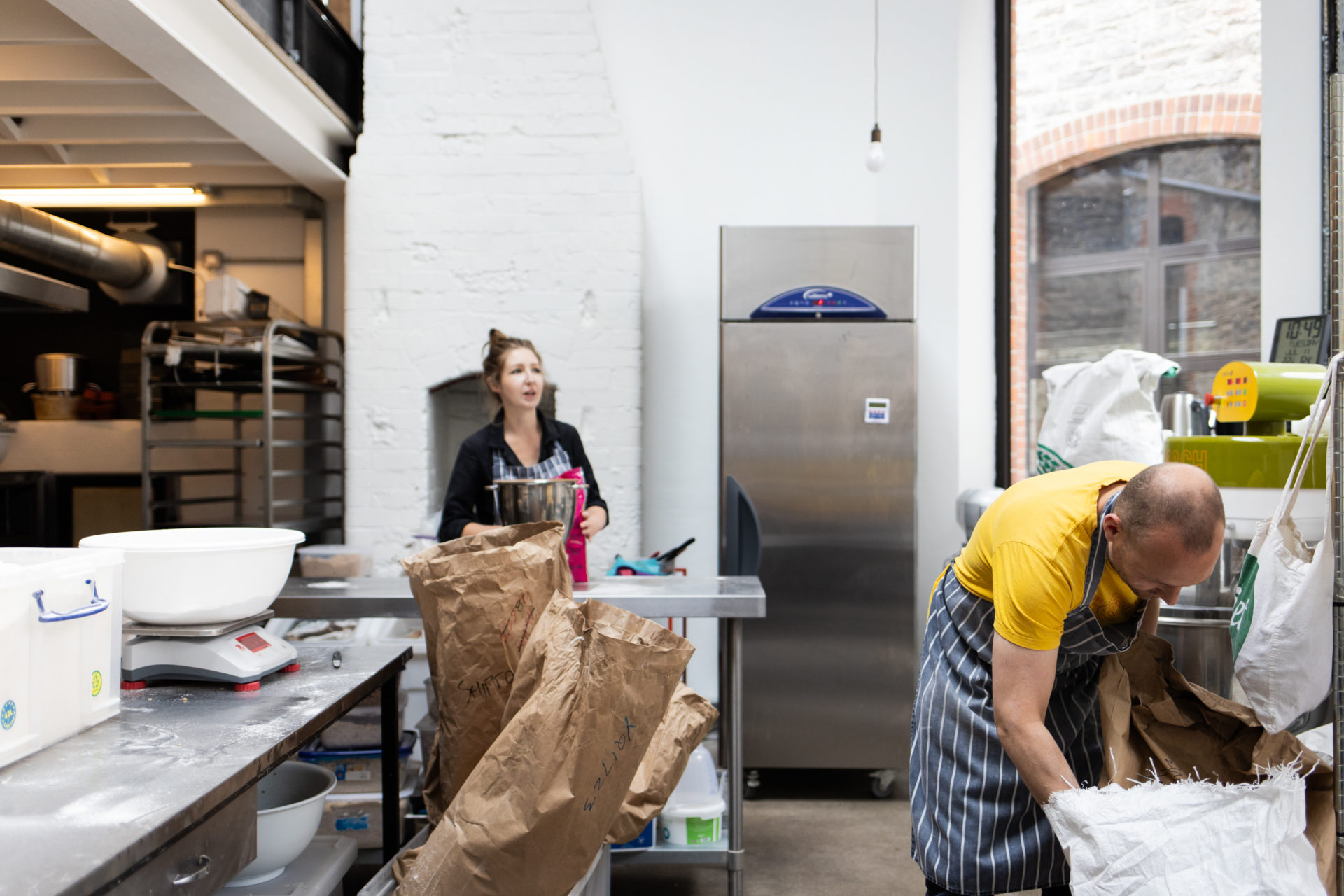
How do you maintain a work/life balance?
Kate: I just don’t know any small business actually does. It’s really hard to be able to do a job when, particularly in this day and age, where you’re supposed to reply to emails whenever they come in, or post on social media. Like, even if you close for a week, you still need to remind people on social media that you exist and will be opening again. Sam was saying earlier, one of the big things we really learned is having some boundaries and being able to say no at certain points when it’s really gotten to the point where we need a break.
Sam: Yeah. The last year we’ve gotten quite good at kind of microdosing breaks. Maybe, even if we only have like 36 hours off, like going to see a band or go camping or go for a walk, we’re lucky in South West aren’t we? That we’re under an hour away from whatever you might want to do.
Kate: A year ago, everything was just constant stress. But this year, because we made these decisions and doing things that really worked out, I think there’s an extent to which if you really care about what we do and you love your business and you’re passionate about what you’re doing, it almost doesn’t feel as much like work outside of work. Even if we decided we’re not going to talk about work today. And eventually we’re like, we’re in the pub and we’re just chatting about ideas, we’ve seen something on Instagram we found interesting. Like, you inevitably come back to it because you’re interested in it. So I think if you’re lucky enough, that’s your relationship with your business.
Sam: Kate is just like rubbish for doing nothing. So if she has a day where we’ve got nothing planned, within an hour she’s in a funk on the sofa. What’s the point of life? Whereas, I can hop on the Xbox for an hour and be totally switched off and be quite happy. And I need that sort of thing.
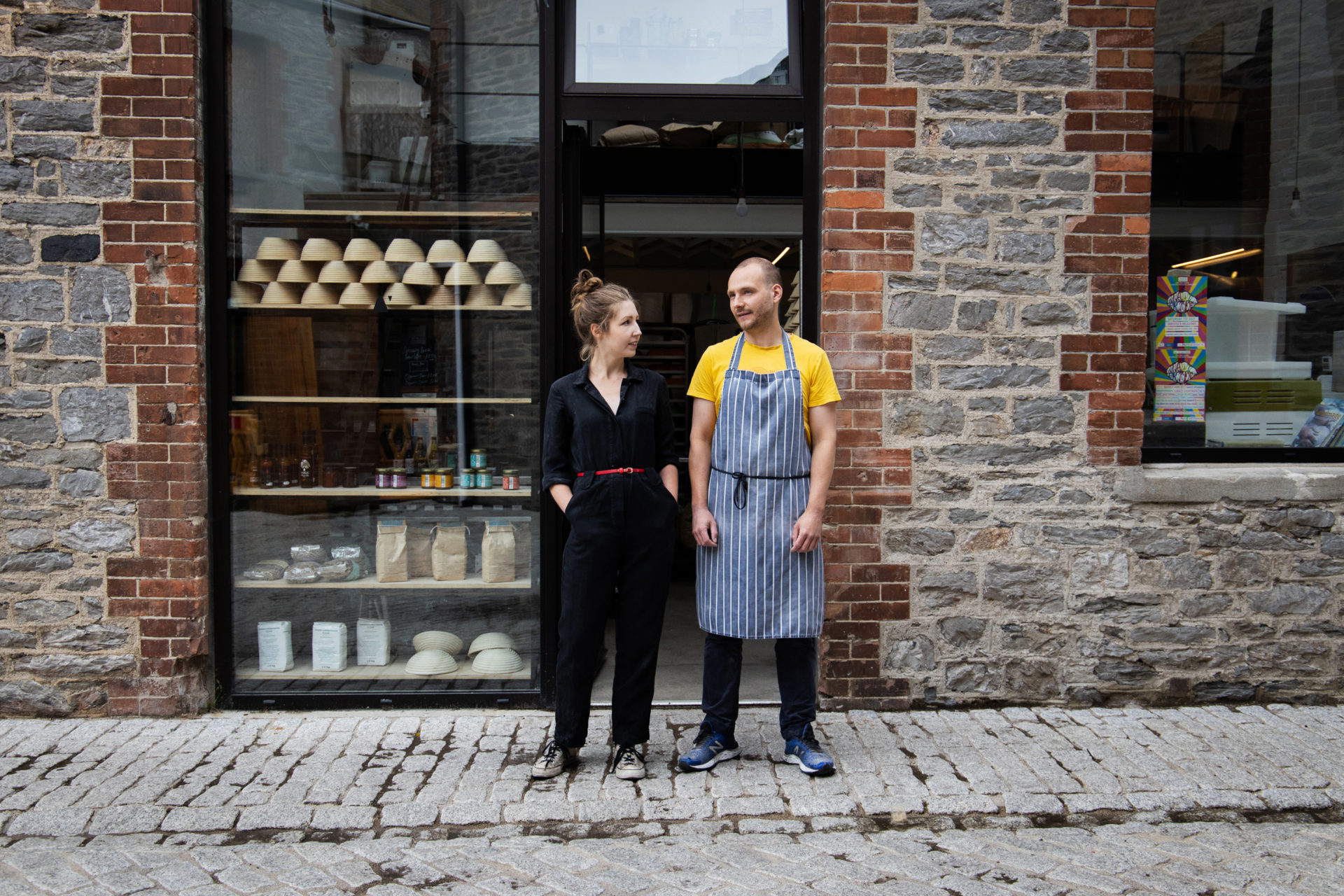
What are your future plans for Heyl?
Kate: We want the space to reflect a bit more what we’re about, I guess just doing what we’re doing.
Sam: We’re always on a journey of sourcing ingredients and things like that, so, like, we started off really well with flour and we started incorporating more organic ingredients, trying to push that a little bit further. Obviously, we can’t do it overnight as we are such a small business, but something we are really interested in.
Kate: Our vision might sound quite small, but I think we both believe in a kind of small scale, keeping things local, being sustainable. One lesson of the pandemic and war in Ukraine, is that it’s important to have sustainable local food networks and suppliers, and you can’t always rely on imports, or big scale production, because if something happens, it falls apart and I think also kind of growing appreciation for reliability in that sense. I think our ambitions are fairly humble, but hopefully sustainable, and in keeping with our values.
I think it’s quite easy in the city to feel disconnected from food because you’re not surrounded by farms, greenery and where food comes from. It becomes a supermarket culture and you have to remember where food comes from and it can be quite hard to reconnect people who live like that.
Sam: It’s about the value that people place in certain categories of food. Like the same people that will give you ‘how much?!’ about a loaf might be down Costa at the retail park on Saturday and it’s £3.80 for a caramel syrup coffee. I’m not slagging that off. But that’s why bread, baked goods are quite a good lighthouse for this kind of issue, because it encapsulates so much, because it’s quite a simple product. The supply chain can be quite transparent if you make it transparent and the effects of that can magnify up. You buy a “posh” bread from the bakery, but if it’s made with flour, milled from grain that’s farmed well, that’s you helping restore the soil in some corner of the world and that’s just so much better than the alternative.
Kate: The bread that you get at the supermarket is just so cheaply and badly made. But unless you check the packet, unless, you know, you just see like for like otherwise, Sam’s done a reccy of some of the kind of sourdough loaves in places like Co-Op and M&S, and actually ours works out better value per 100g. And they’re full of all these additives, all this cheap, like heavily processed flour. But the nutritional value you get out of bread done the way that we do it, there’s so many better health benefits, but because our farming and food system is so broken, it seems so inaccessible. There’s quite a live debate in the baking circles that we move in, about how do you make good bread affordable? And even people who are really passionate about this just turn around and say, you can’t make it cheaper without making it worse. What is the balance there? Because when supermarket bread is so subsidised, so under-priced, how do you have sustainable good food that people can access?
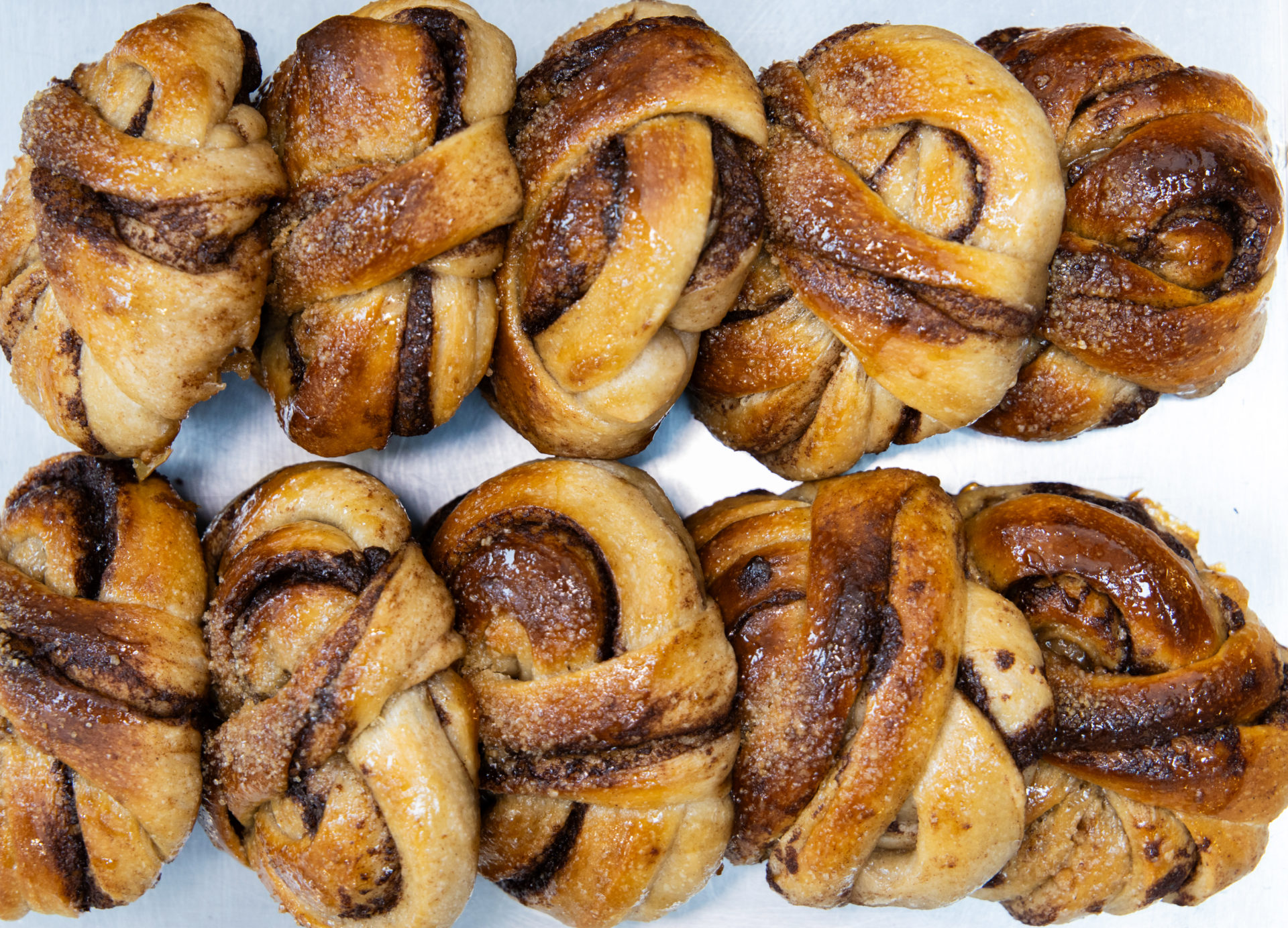
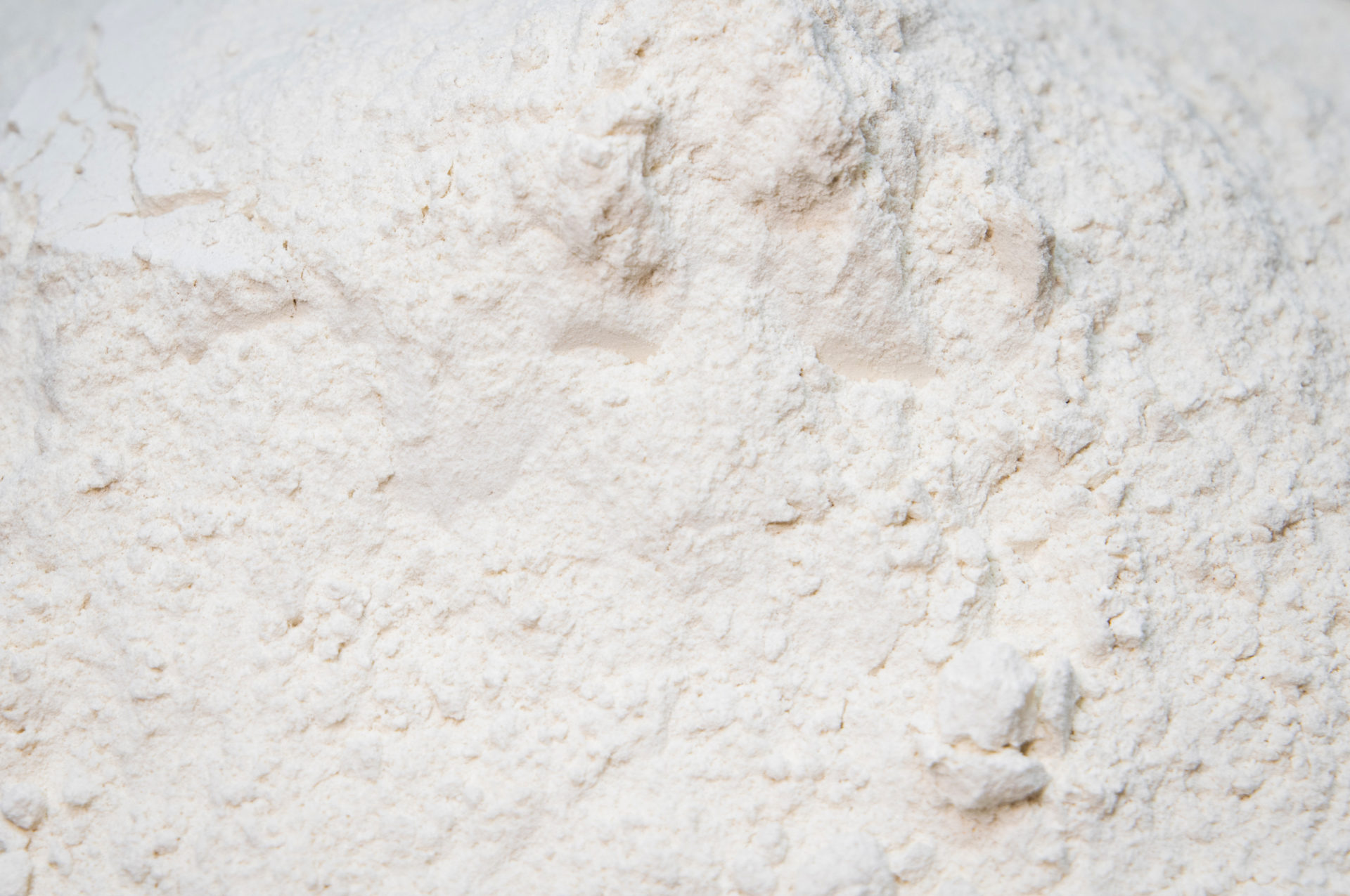
Playlist or podcast?
Kate: So if we’re open its playlist. On Tuesdays, when we’re closed, it’s normally back to back podcasts. We like Off-Menu. We’ve really gotten into one called If Books Could Kill You, and it’s so good. It’s basically two guys that just tear apart all those kind of, like, airport books, all the ones that claim to either fix things or, like, ten ways, it’ll solve all the problems and they literally tear it apart. And it’s literally so funny. Music wise when you’re open to the public, you have to keep it pretty accessible. We’ve gotten into a few local bands at the moment, like Mala Vita, Land of the Giants, maybe Buena Vista Social Club kind of stuff.
Sam: I worked in a cafe in Leeds where the owner just had this wall of CDs and I just stole all the music taste from there and it hasn’t evolved since.
Kate: When we closed the other day, it’s been a long day, and there’s lots of cleaning to do, that’s when the rock playlist comes out, a bit of Guns N’ Roses, stuff like that.
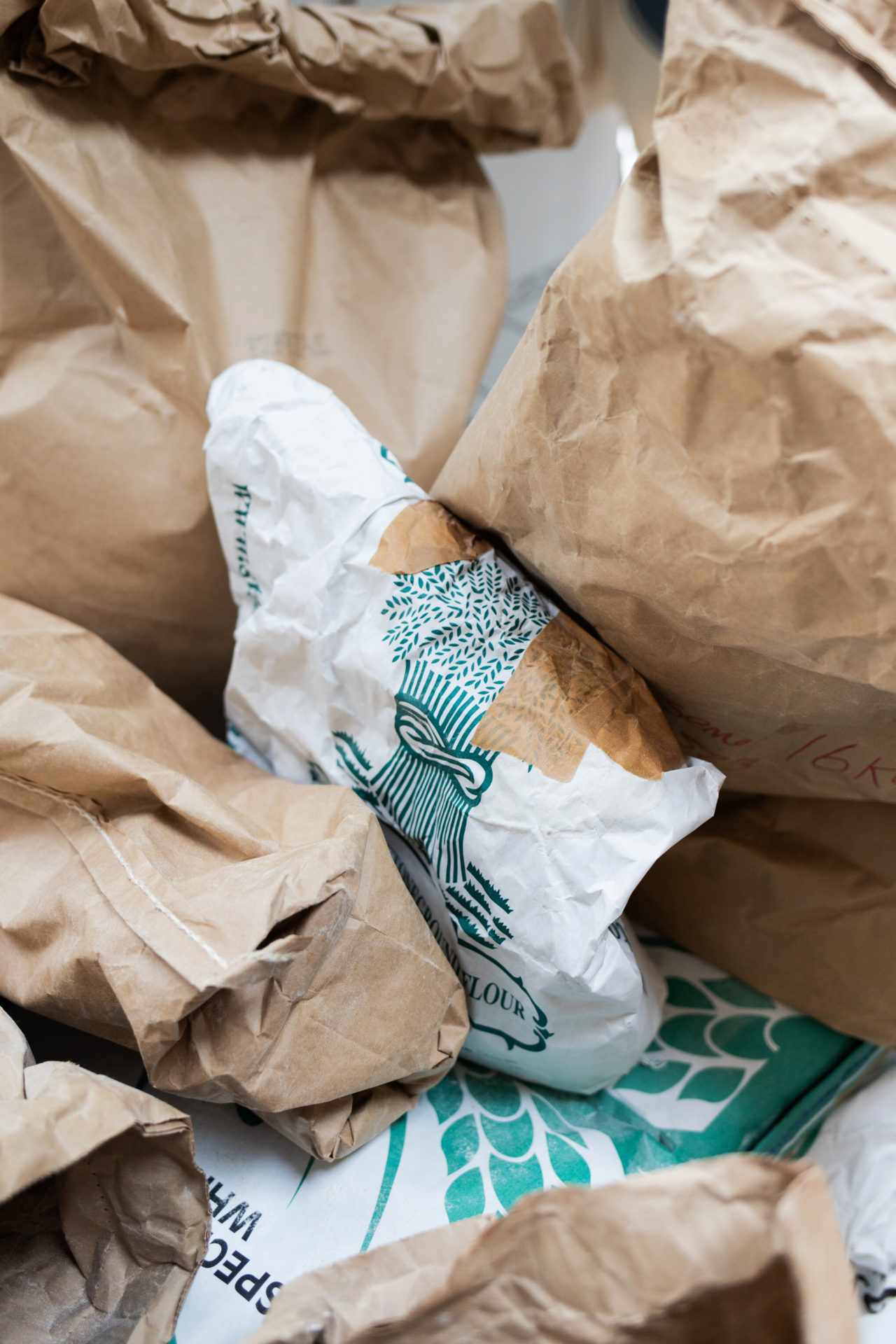
Any advice for any kind of up-and-coming small business start-ups?
Kate: Trust yourself. Take time to think it through. Make sure you have a support network around you. Even if it’s just small, when you’re really having those burnout days, those bad days and someone to turn to outside of the business, just give it a perspective or hug or something like that. It’s just invaluable. Help you keep going.
Sam: I don’t know how anyone can do a business on their own. We’ve got each other, I just don’t know how you could be an island and doing it, it’s just too intense.
Kate: As well, just be prepared to clean. I didn’t realise how much of our time is just to be spent washing up, sweeping, mopping, washing up. Just embrace it, it just lean into it.
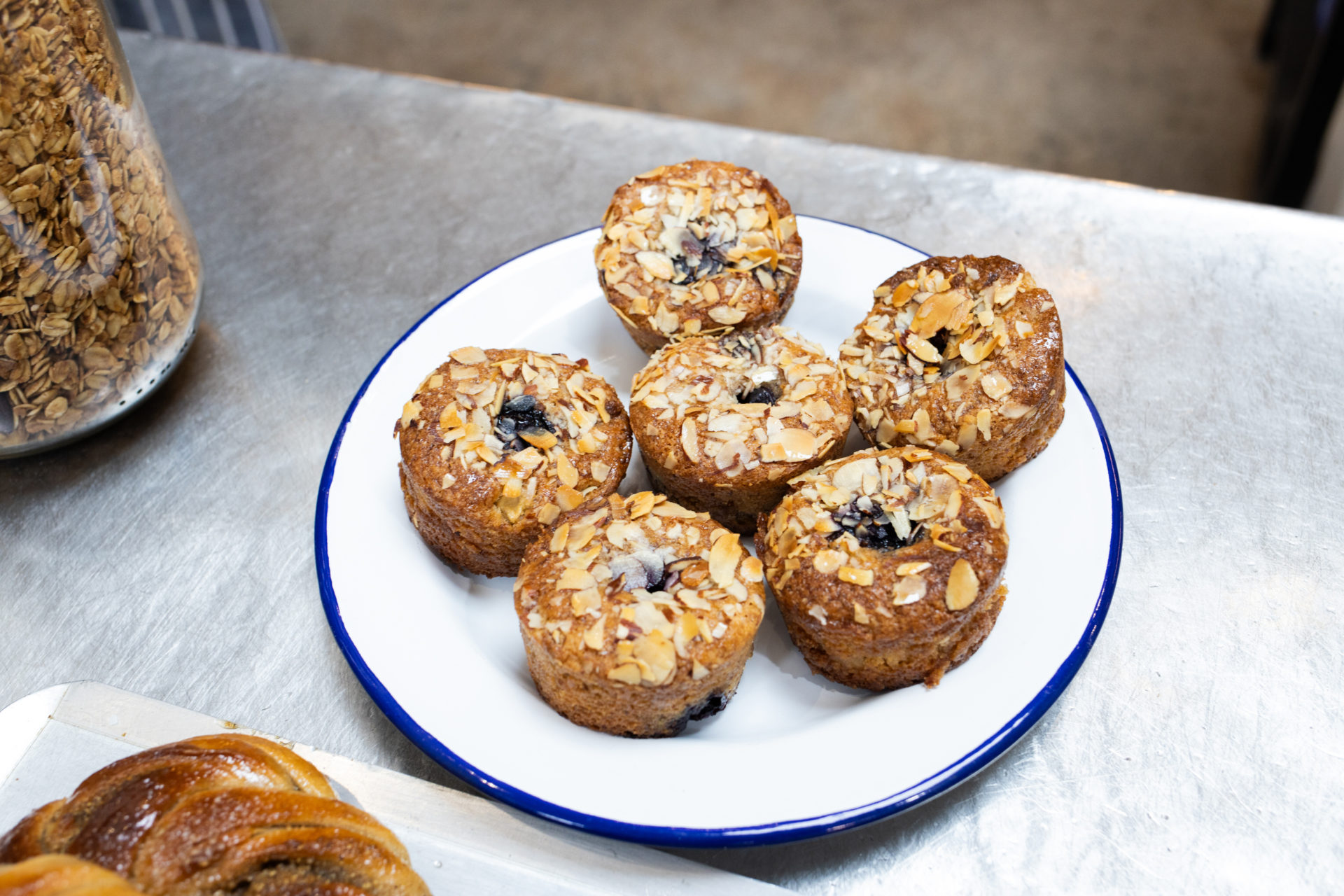
What keeps you in Plymouth?
Kate: Business, family, the location, knowing you have the benefits of a city. But then you’ve also got countryside.
Sam: There is so much good stuff going on, but also so much potential for good stuff.
Kate: It’s really exciting to see Plymouth going through this blossoming period having grown up here when it felt like it was on the downward slide, because investment just seems to be disappearing to come back and see what’s happening is great. There’s a whole load of businesses of similar ages where we’re just kind of feeling it out, just figuring it out…
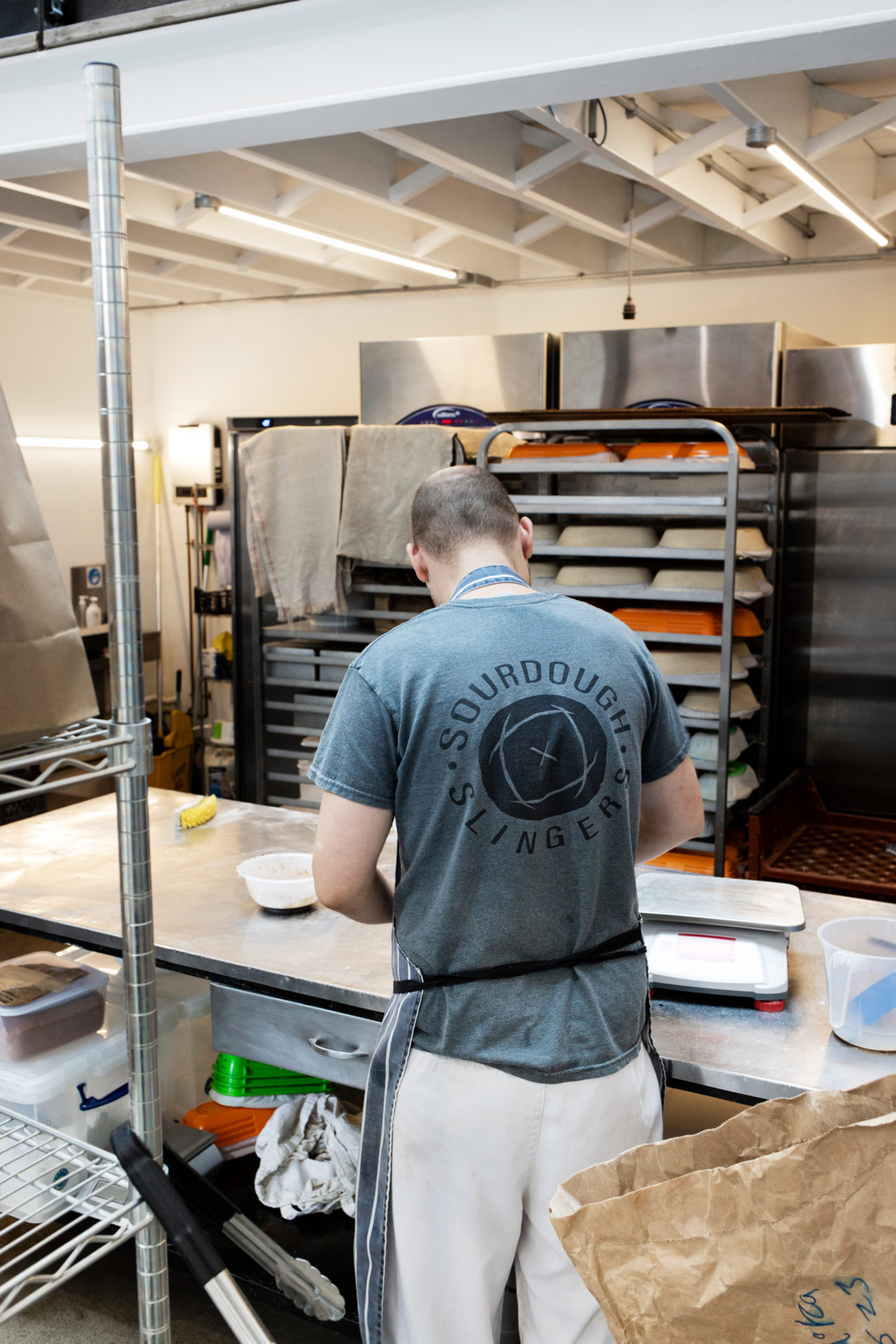
Check out Heyl Bakery:
Website > https://www.heylbakery.com/.uk/
Instagram > https://www.instagram.com/heylbakery
—
If you’d like to feature on our HEY Series please let us know. Get in touch here.